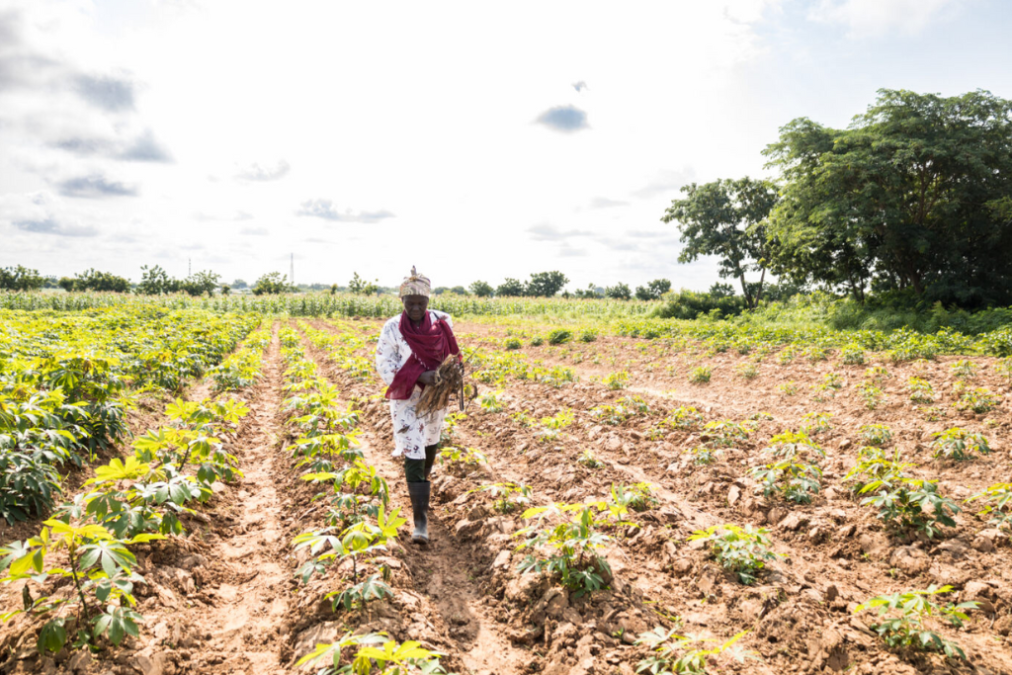Historically, smallholder farmers in sub-Saharan Africa and South Asia have missed out on the full benefits of advances in global crop science. In some countries, only 10 per cent of farmers have access to the latest generation of seeds or planting material.
At the same time, a wave of new and converging technologies is creating the potential for transformational breakthroughs in crop science innovation that address some of the most pressing challenges facing smallholder farmers, from pest threats and degraded soil to climate change.
To capitalise on this opportunity while democratising access to the latest agricultural technology, Bill & Melinda Gates Agricultural Innovations (Gates Ag One) was created to meet the underserved needs of smallholder farmers. As Gates Ag One formally announces the opening of its headquarters, Farming First spoke with CEO Joe Cornelius about Gates Ag One’s mission.
Firstly, could you tell us more about Gates Ag One and the role that it plays within the crop science sector?
Joe Cornelius: Bill & Melinda Gates Agricultural Innovations (Gates Ag One) is an affiliate of the Bill & Melinda Gates Foundation, created to accelerate crop innovations reaching and benefitting smallholder farmers in sub-Saharan Africa and South Asia.
Smallholder farmers produce around a third of the world’s food. Yet yields in sub-Saharan Africa and South Asia are often held back by a lack of access to the latest agricultural innovations. This contributes to persistent levels of rural poverty and hunger and is worsening with the impact of climate change.
We play the role of an agricultural innovation accelerator, connecting what is currently a fragmented R&D pipeline that often misses the unique needs and realities of smallholder farmers.
Although our official name is Bill & Melinda Gates Agricultural Innovations, we call ourselves Gates Ag One because it reminds us that agriculture is the cornerstone of civilisation and truly connects us as one.
Why focus on sub-Saharan Africa and South Asia?
JC: Sub-Saharan Africa and South Asia is where the scale of need and market viability are greatest. At present, low agricultural productivity is a main driver of persistent poverty in these regions. Sub-Saharan Africa has 25 per cent of the world’s arable land yet produces only 10 per cent of global agricultural output. The situation is similar across much of South Asia.
Supporting smallholder agriculture in these regions helps unlock numerous and significant other development gains such as better livelihoods, stronger economies, and greater climate resilience.
What kinds of technologies do you see as being most beneficial for smallholder farmers?
JC: Gates Ag One is technology agnostic and driven by the demands and needs of smallholder farmers. At present, we see immense potential to sustainably improve the prospects of small-scale agriculture by optimising plant biology.
Our initial portfolio of grantees and partners includes collaborative projects that explore ways to increase the nutrient uptake and metabolic processes – such as photosynthesis – of priority crops to maximise growth as well as increasing resistance to pests and disease.
For maximum impact, we are currently focusing our efforts on the six important crops for smallholder farmers: cassava, cowpea, maize, rice, sorghum and soybean.
What makes Gates Ag One different from other agricultural development organisations?
JC: Our priority is to help translate breakthrough crop science and scientific discoveries into viable and valuable products that reach smallholder farmers and offer them the same chance to thrive as those elsewhere.
We believe that collaboration, not competition, produces the best results, and we are inspired by a coordinated network approach to innovation. Our model involves uniting the best minds from across the field and connecting the public and private sectors to establish a viable route to market for new agricultural technologies.
How optimistic are you about delivering Gates Ag One’s mission?
JC: We recognise the scale of the challenge to level the playing field for smallholder farmers in sub-Saharan Africa and South Asia. That said, Gates Ag One’s entire staff and leadership team is motivated by the unprecedented opportunity to apply their skills and expertise to an age-old development challenge. By bringing together world-leading science and product development know-how, we believe we can give smallholder farmers a better season.
Header photo: Bill & Melinda Gates Agricultural Innovations (Gates Ag One)




